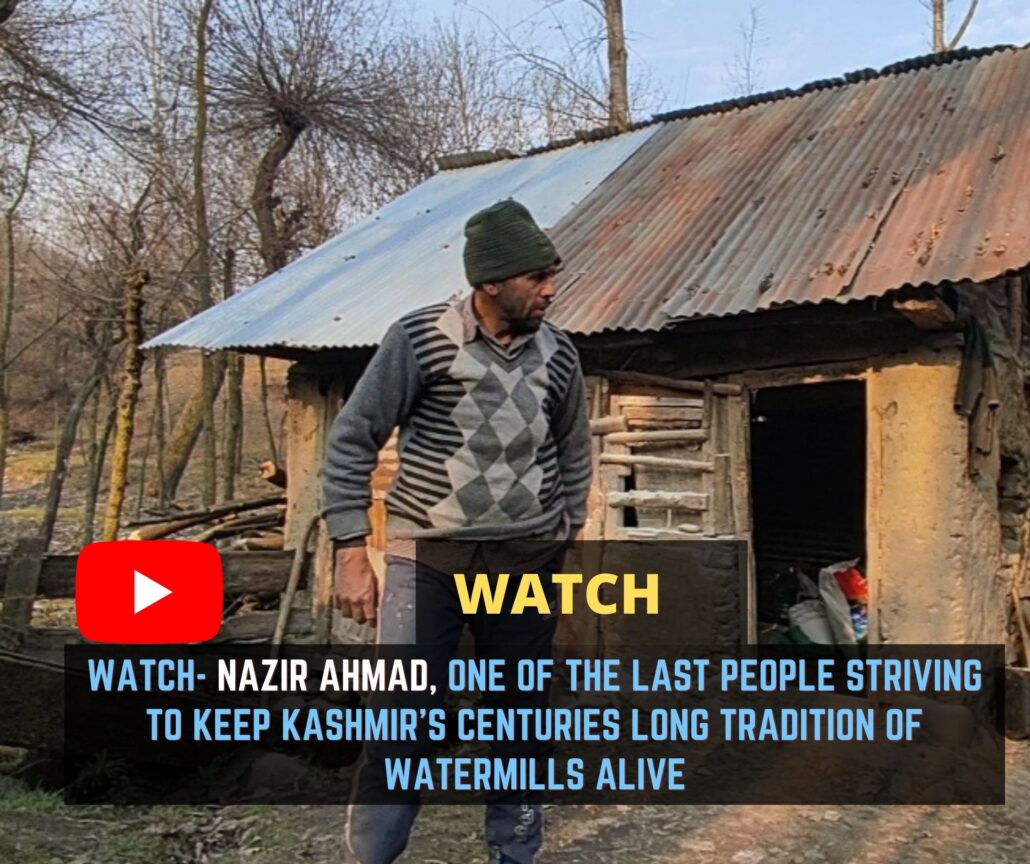
Bhat Yasir
It is commonly assumed that Kashmir’s traditional Water Mill–commonly known as ‘Aab Gret’– have become extinct. But in some parts of rural Kashmir, the ‘Aab Grata’ still exist.
In north Kashmir’s Baramulla district, Nazir Ahmad Lone runs an ancestral ‘Aab Gret’ (Water Mill) at his village in Gohiwa, Pattan. People travel hundreds of meters on foot to reach here and get wheat, rice and grains grinded into flour.
Watch video
A water mill is a structure that uses a water wheel or water turbine to drive a process such as milling, rolling, or hammering. The most common mechanical process historically associated with water mills is grinding grains into flour. It was originally used for this purpose in ancient Greece.
Nazir, the owner and runner of this water mill told The Kashmiriyat that his family has been running the watermill from more than a century. “Although, the work is down since some years now, as compared to the older times,” he said, adding that machines that ran on electricity were a big cause behind it.
Pertinently, the water mill uses hydropower which moves the wheel or turbine to operate the whole process of grinding or milling. The benefit of ‘Aab Gret’ is that it doesn’t need electricity, fuel or any other fossils which contribute to the pollution in the environment.
The water which flows through a small water channel is also used for agricultural and horticultural purposes after doing its job of moving the wheel, as it doesn’t get polluted anyway.
“This was also the identity and tradition of Kashmir,” said Nazir Ahmad. He added that the work helped him earn money back in the day but the work has significantly reduced over the years, affecting the financial condition of the family.
Showket Ahmad, a local resident, said “This is our identity.” He added that the government had turned a blind eye towards it. “The government has been spending a lot of money on development, but couldn’t help us or upgrade the water channels for mills,” he said.
Showket added, “If the government pays attention towards it and upgrades the water channels, this tradition and identity might remain intact.”
